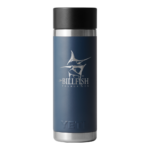The NMFS recently released its Discussion Draft Ecosystem-Based Fishery Management (EBFM) Policy to serve as guiding principles for the agency’s decision making over the long term. NOAA defines EBFM “as a systematic approach to fisheries management in a geographically specified area that ensures the resilience and sustainability of the ecosystem; recognizes the physical, biological, economic, and social interactions among the affected components of the ecosystem, including humans; and seeks to optimize benefits among a diverse set of societal goals.” The government provides that with an EBFM “consideration will be given to interactions among fisheries, protected species, aquaculture, habitats, and other ecosystem components, including the human communities that depend upon these ecosystem services.”
Application of an EBFM policy to guide fishery management will take a holistic approach that incorporates many factors that can impact the status of species and habitat. Some impacting factors will be: oceanography, acidification, climate change, habitat, ecosystems, trophic relationships, population dynamics between species populations , social and economic factors of user groups and existent values for birds, mammals, turtles and other resources.
The devil will be in the detail of who weights the factors and who interprets the values; each user and non-user segment of the population would likely differ significantly on some values and weights assigned. Comments on the Policy are due by December 16, 2015 and should be sent via email to either Jason Link,([email protected]) Senior Scientist for Ecosystems, or Heather Sagagar, ([email protected]),Senior Policy Advisor. TBF will share its comments prior to the due date.






